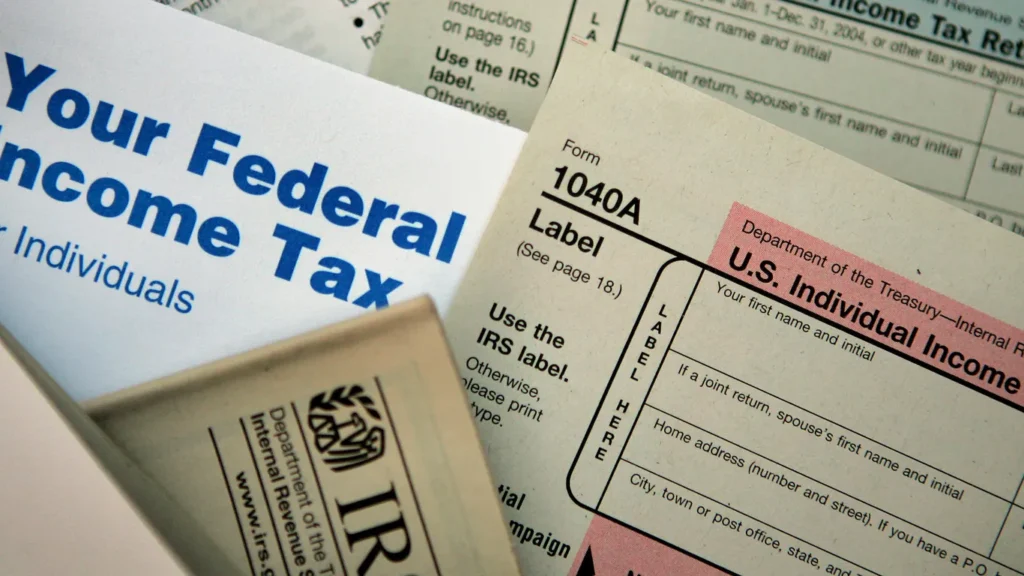Key Takeaways:
- Dealing with the IRS can be complex, requiring the expertise of an IRS tax attorney.
- An IRS tax attorney can help navigate tax laws, ensuring compliance and minimizing tax liability.
- Having an IRS tax attorney during an audit provides peace of mind and increases the chances of a favorable outcome.
- An IRS tax attorney helps prevent penalties by ensuring compliance with tax regulations.
- When choosing an IRS tax attorney, consider their experience, track record, communication, and specialization in tax law.
- Research the attorney’s reputation and success rate, and discuss their fee structure before hiring.
- An IRS tax attorney handles communications with the IRS, negotiates to resolve tax issues, and ensures your rights are protected.
Why Do You Need an IRS Tax Attorney?

Dealing with the IRS can be a daunting experience, especially when it comes to navigating the complex world of tax laws. That’s where an IRS tax attorney comes in. These professionals specialize in tax law and can provide the guidance and expertise needed to navigate the intricacies of dealing with the IRS.
Understanding the Complexities of IRS Tax Laws
IRS tax laws are constantly changing and can be difficult for the average person to comprehend. From deductions and credits to penalties and audits, there are numerous aspects of tax law that require a deep understanding to ensure compliance and minimize tax liability.
An IRS tax attorney is well-versed in the ever-evolving tax code and can provide invaluable advice on how to navigate complex tax laws. They can help you understand your rights and obligations as a taxpayer, ensuring that you don’t find yourself on the wrong side of the law.
The Importance of Expert Advice for Tax Audit Representation
One of the most nerve-wracking experiences for any taxpayer is being audited by the IRS. During an audit, the IRS examines your financial records and tax returns to ensure compliance with tax laws. This can be a time-consuming and stressful process, but having an IRS tax attorney by your side can provide much-needed peace of mind.
An IRS tax attorney can represent you during the audit process, advocating for your best interests and ensuring that your rights are protected. They have the knowledge and experience to navigate through the audit process and negotiate with the IRS on your behalf. This can greatly reduce the stress and anxiety associated with an audit and increase the chances of a favorable outcome.
Ensuring Compliance with Tax Regulations and Avoiding Penalties
Failure to comply with tax regulations can lead to severe penalties and legal consequences. The tax code is filled with intricate rules and regulations that can often be confusing for taxpayers. Without proper guidance, it’s easy to make innocent mistakes that can result in fines, interest, and even criminal charges.
An IRS tax attorney can help you navigate through the complexities of tax regulations, ensuring that you stay in compliance and avoid unnecessary penalties. They can assist in preparing accurate and complete tax returns, minimizing the risk of errors that could trigger an IRS investigation.
How to Choose the Right IRS Tax Attorney
Choosing the right IRS tax attorney is crucial to ensure effective representation and successful resolution of your tax issues. Here are some key factors to consider when selecting an IRS tax attorney:
Evaluating the Attorney’s Experience in Tax Law
When selecting an IRS tax attorney, it’s important to consider their level of experience in tax law. Look for an attorney who specializes in tax law and has a proven track record of successfully handling cases similar to yours. An experienced attorney will have a deep understanding of the intricacies of tax law and will be equipped to handle complex tax issues.
Ask potential attorneys about their experience with IRS audits, tax litigation, and negotiating settlements. Inquire about their success rate and the outcomes they have achieved for their clients. A seasoned IRS tax attorney will be able to provide examples of cases they have successfully resolved, giving you confidence in their ability to handle your tax matters effectively.
Researching the Attorney’s Track Record and Success Rate
Prior to hiring an IRS tax attorney, it’s important to research their track record and success rate. Look for online reviews and testimonials from past clients to get an idea of their reputation and level of satisfaction. You can also check if the attorney has any disciplinary actions or complaints filed against them with the state bar association.
Don’t be afraid to ask the attorney for references from past clients. Speaking directly with someone who has worked with the attorney can provide valuable insights into their professionalism, communication skills, and effectiveness as a tax attorney.
Considering the Attorney’s Communication and Availability
Effective communication is essential when working with an IRS tax attorney. You need an attorney who will keep you updated on the progress of your case and provide clear explanations of complex tax concepts. During the initial consultation, assess the attorney’s communication style and responsiveness. Are they prompt in returning your calls and emails? Do they take the time to answer your questions in a way that you can understand?
Additionally, consider the attorney’s availability and workload. You want an attorney who can dedicate adequate time and attention to your case. If an attorney is overloaded with clients, they may not be able to give your case the attention it deserves, potentially delaying the resolution of your tax issues.
Factors to Consider When Hiring an IRS Tax Attorney
When it comes to hiring an IRS tax attorney, there are a few additional factors to consider:
The Importance of Specialization in Tax Law
IRS tax law is a highly specialized area of practice, and it’s important to hire an attorney who focuses specifically on tax law. A specialist in tax law will have a deeper understanding of the complexities and nuances of the tax code, enabling them to provide more effective representation.
Be wary of attorneys who claim to specialize in multiple areas of law. While they may be competent lawyers, their lack of focus on tax law could limit their ability to provide the level of expertise needed to navigate complex tax issues. Look for an attorney who dedicates their practice exclusively to tax law.
Budgeting for Attorney Fees and Pricing Structure
Before hiring an IRS tax attorney, it’s crucial to discuss their fee structure and ensure it aligns with your budget. Tax-related cases can be time-consuming and involved, resulting in significant legal fees. Make sure you have a clear understanding of how the attorney bills for their services and what expenses you may be responsible for.
Keep in mind that while cost is an important consideration, it should not be the sole determining factor in your decision. A skilled IRS tax attorney may charge higher fees but could save you money in the long run by effectively resolving your tax issues and avoiding costly penalties.
Assessing the Attorney’s Reputation and Client Reviews
When hiring an IRS tax attorney, reputation is key. Seek out recommendations from trusted sources, such as friends, family, or other professionals in the legal or financial industry. Word-of-mouth can often be a reliable indicator of an attorney’s reputation and level of expertise.
Additionally, research online for client reviews and testimonials. Pay attention to the overall sentiment and the specific experiences shared by past clients. This will give you a better understanding of the attorney’s reputation and the quality of service they provide.
What to Expect When Working with an IRS Tax Attorney
When you engage the services of an IRS tax attorney, you can expect them to fulfill several important roles during the process of resolving your tax issues:
The Role of the Attorney in Handling IRS Communications
One of the primary responsibilities of an IRS tax attorney is to act as a buffer between you and the IRS. They will handle all communication with the IRS on your behalf, ensuring that your rights are protected and that you provide only the necessary information.
Your attorney will review all notices, letters, and requests from the IRS, and prepare appropriate responses. They will also attend meetings and negotiations with IRS agents, representing your best interests and advocating for a favorable resolution.
Negotiating with the IRS to Resolve Tax Issues
Negotiating with the IRS can be a complex process that requires a deep understanding of tax laws and regulations. An experienced IRS tax attorney will know how to navigate the negotiation process and seek the best possible outcome for your case.
They will analyze your tax situation, identify potential options for resolution, and negotiate with the IRS to reach an agreement that minimizes your tax liability and avoids harsh penalties. This may involve negotiating installment agreements, offers in compromise, or penalty abatement.
Understanding the Attorney’s Fee Structure and Billing Practices
Before engaging an IRS tax attorney, it’s important to have a clear understanding of their fee structure and billing practices. Most tax attorneys charge an hourly rate for their services. However, some may offer alternative fee arrangements, such as flat fees for specific services or contingency fees based on the outcome of your case.
During the initial consultation, discuss the attorney’s fee structure and ensure that it aligns with your budget and expectations. Ask for an estimate of the total cost and inquire about any additional expenses that may arise during the course of your case.
In conclusion, finding the perfect IRS tax attorney is crucial when dealing with complex tax issues. By understanding the complexities of IRS tax laws, choosing the right attorney, considering important factors, and knowing what to expect during the process, you can ensure effective representation and resolution of your tax concerns. Take the time to research and evaluate potential attorneys to find the one who best suits your needs and can provide the expertise and guidance you require.
FAQ
Question: Why Do You Need an IRS Tax Attorney?
Answer: Dealing with the IRS can be a daunting experience, especially when it comes to navigating the complex world of tax laws. That’s where an IRS tax attorney comes in. These professionals specialize in tax law and can provide the guidance and expertise needed to navigate the intricacies of dealing with the IRS.
Question: How to Choose the Right IRS Tax Attorney?
Answer: Choosing the right IRS tax attorney is crucial to ensure effective representation and successful resolution of your tax issues. Here are some key factors to consider when selecting an IRS tax attorney:
Question: Factors to Consider When Hiring an IRS Tax Attorney
Answer: When it comes to hiring an IRS tax attorney, there are a few additional factors to consider:
Question: What to Expect When Working with an IRS Tax Attorney
Answer: When you engage the services of an IRS tax attorney, you can expect them to fulfill several important roles during the process of resolving your tax issues:
Useful Resources
· Internal Revenue Service (IRS)
· American Bar Association (ABA)
· National Association of Enrolled Agents (NAEA)
· Tax Problem Resolution Services
· National Association of Tax Professionals (NATP)
· TaxAttorney.com
· Internal Revenue Code (26 U.S.C.) – Cornell Law School
· Tax Notes
- Minecraft (2009) Game Icons Banners A Guide to Customization and Creativity - 19 December 2024
- Understanding QXEFV A Comprehensive Guide - 29 October 2024
- Discover Shopping Excellence with Shopyistan.pk – Your Ultimate Destination for Quality and Convenience - 29 October 2024
